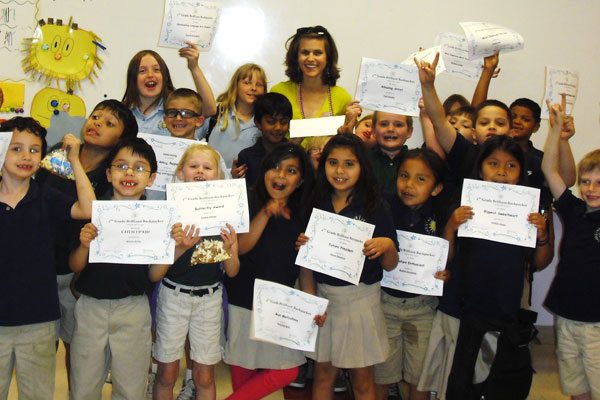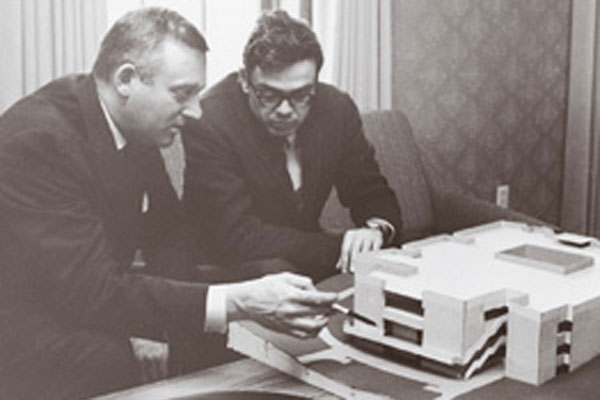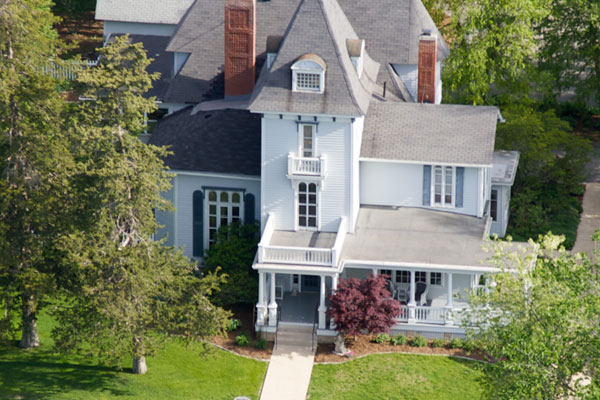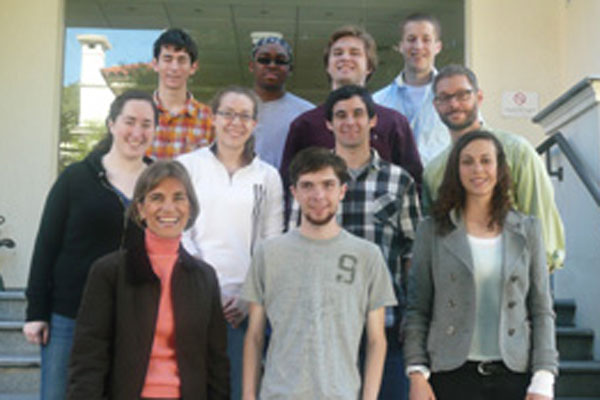In Brief
Tuition Ends Week recognizes gifts
In early April, gift tags started popping up on buildings around campus. They weren’t late—or very early—Christmas presents, they were a
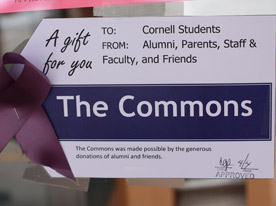
reminder to everyone on campus that Cornell wouldn’t be Cornell without the support of alumni and friends of the college.
The tags were placed by members of the Cornell Alumni Student Association (CASA) to remind people that tuition and fees cover only 83 percent of total annual operating costs for the college. CASA dubbed the event Tuition Ends Week, and used it to educate the campus community that gifts bridge that gap.
Some tags recognized specific building donors, while others recognized general scholarship or annual fund support. CASA set up a table in The Commons, and asked students to sign thank-you postcards that would be sent to donors. Nearly 300 postcards were signed and mailed.
Among the gift tags were recognitions of Jim McWethy ’65 (McWethy Hall and the Berry Center for Economics, Business, and Public Policy), Henry and Annie Merner Pfeiffer (Merner and Pfeiffer halls), Richard Small ’50 and honorary alumna Norma Thomas Small (Small Multi-Sport Center, among many other buildings and projects), the Richard P. Kimmel ’19 and Laurine Kimmel Charitable Foundation (Kimmel Theatre), and Dr. Larry Dorr ’63 (Dimensions: The Center for the Science and Culture of Healthcare).
‘Ultimate’ rivals
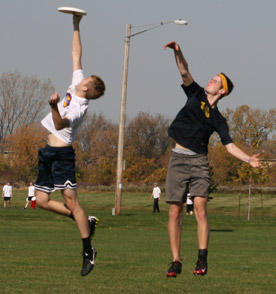 The football rivalry between Coe and Cornell is the oldest west of the Mississippi, dating back to 1891. Maybe in another 120 years the same will be said of the college’s Ultimate Frisbee rivalry.
The football rivalry between Coe and Cornell is the oldest west of the Mississippi, dating back to 1891. Maybe in another 120 years the same will be said of the college’s Ultimate Frisbee rivalry.
The two schools met for the first time to play Ultimate Frisbee on April 30. Cornell’s C-Team came out with a 14–12 victory.
The rules of Ultimate, as players know it, are similar in some ways to football, with one team throwing a disc from their end zone and the other team trying to advance that disc back to the end zone to score.
Junior Cody Hopewell, a member of the club, explained the guiding principle of the sport is following “the spirit of the game.”
“Since there are no referees in Ultimate, it depends on the players to manage their own games,” he said. “In order for this to work, players on both teams must respect each other, make fair calls, and be willing to work with each other to make sure each game runs smoothly. Thus, while Ultimate is still a highly competitive sport, the spirit of the game allows for a sense of camaraderie to exist between the two opposing teams. This aspect separates Ultimate from other sports and makes each game about the love of the sport.”
Weddle returns to speak on miracles
Former religion professor David Weddle returned in May to give the fifth Roe Howard Freedom Lecture. Weddle, who now teaches at Colorado College, spoke about themes from his recent book, “Miracles: Wonder and Meaning in World Religions.” Before the speech, he met informally with staff, faculty and students.
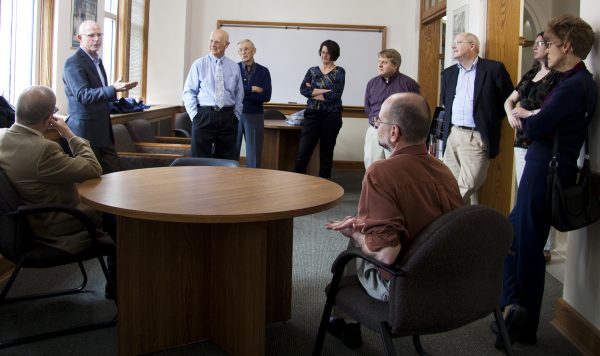
KRNL tradition continues
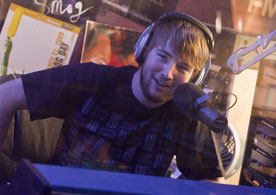
Junior DJ Luke Korth announces from the studios of KRNL-FM, which has been on-air since 1948. During the school year the station broadcasts over the airwaves and through a live stream at orgs.cornellcollege.edu/krnl. According to its website, it has endured “bouts of ever-changing popularity and countless dramatic events which could take forever to list here. Through it all, however, the station has persevered, continuing to be a positive source of experience and enjoyment for the people who listen in and slave every day to keep it on the airwaves.”
Mona Lisa in Mount Vernon
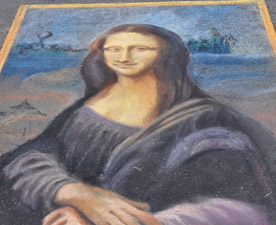
Mount Vernon’s annual Chalk the Walk festival featured a Mona Lisa reproduction with a Cornell reference in the background. Artist Mary Campbell was one of nearly 200 artists—including Cornell students, alumni, and faculty—who used downtown’s Main Street as a canvas to create large pastel drawings.

